Pride Rising
Screenwriter Stephen Beresford on the exhilarating new film that celebrates an historic event which paved the way for the rights of gays and lesbians in Britain

In 1984, a small band of London-based activists formed a group called Lesbians and Gays Support the Miners (LGSM) and began to raise money — often standing on the streets outside a local gay bookstore armed with buckets — to support Britain’s striking mining communities, places at the time not known for fostering tolerance or hospitality toward homosexuals. This was during the reign of Margaret Thatcher, who in her (ultimately successful) attempts to privatize the coal mining industry, decimated the lives and communities in these small, remote mining towns. The strike lasted a year, and the support given to the miners by LGSM, the unlikeliest of allies, forged a relationship that created a cataclysmic show of support from the miners, which greatly helped advance the march towards full LGBT equality in the United Kingdom.
In the mid-90s, a young gay actor and budding playwright named Stephen Beresford was told the story of LGSM by his then-boyfriend. The very idea of it blew him away.
“I grew up in Dartmouth,” says the 41-year-old first-time screenwriter. “It’s Old England. And it’s a very prosperous place…. They loved Margaret Thatcher there. Absolutely crazy about her. So the miners’ strike, when it was happening and I was a kid, didn’t really impact me at all. I saw it on the TV and I found it troubling, as anybody did, because it was a sort of a frightening time, Britain in the ’80s. But it wasn’t in my daily life in the way that it would have been in the midlands or Wales or Scotland.”
Off and on for the next two decades, Beresford worked on crafting a screenplay that would justly celebrate the brief, symbiotic relationship between miners and gays. The resulting motion picture, Pride, is perhaps the most exhilarating, poignant, deeply satisfying gay British film since 1996’s Beautiful Thing. To say that the end result, directed by Matthew Warchus and magnificently acted by a cast that includes veterans Imelda Staunton, Bill Nighy and Dominic West alongside newcomers Ben Schnetzer, George Mackay and Faye Marsay, fills Beresford with pride is an understatement.
“The trick is to do what you care about,” says Beresford on the phone from England, pondering why his first screenplay worked out so well. “That’s always the answer — do what you care about.”
METRO WEEKLY: What was it that attracted you to this story, to take this profound, historical moment for gays and lesbians in the U.K. and create a movie out of it?
STEPHEN BERESFORD: I was told the story about twenty years ago, which is a story in itself. It was the ’90s and I was about twenty-one years old. There was a much smaller, secondary miner’s strike happening in the U.K. — John Majors’ government, the successive government after Margaret Thatcher’s, was finishing what she started, basically. She privatized the industry and shut down those [mining] communities, and he was just rounding up the end of it. It was a very small rump-end of what in the ’80s had been very, very huge. It almost felt like a civil war if you were living in the U.K.
I was a child when the first one was happening, and now I was just a young gay person. I had a boyfriend who was about ten years older than me, and we were having a conversation — an argument, really — about the miners’ strike and whether we should be supporting the miners. The idea of me supporting the miners, as a gay person, was sort of extraordinary, and I said, “Why should I support the miners? They don’t support me.” And he said, “Let me tell you a story….” And he told me the story of LGSM. I’d never heard anything about it. In fact, I felt it was so unlikely, I thought it was a lie or some sort of gay myth.
He told me the little he knew, which is that coach loads of miners had turned up at gay pride and marched up at the front of the parade with their lodge banners. They brought all the traditions of the Labour Movement’s marching apparatus — including a brass band — to a gay parade march.
It stayed with me. Looking back on it, I felt like a lot of young gay people at the time — I was probably quite fearful. I had come out, and I was living openly and cared passionately about visibility and all those sort of issues. But I honestly saw the world in a very isolationist sense, because I thought everybody else pretty much was ranged against me. And I believed that the only person who was going to fight for gay rights was another gay person.
And being told that story, everything exploded open, and I suddenly saw the effectiveness of us all. I suddenly saw all those struggles have a common cause. You don’t have to be a woman to care about women’s rights. You don’t have to be gay to care about gay rights. And you don’t have to be black or Asian to care about the rights of people who aren’t white. That blew me away as an idea. What happens as a writer is, when something makes you feel something very strongly, you think, “How can I write that down? How can I translate that into a piece of work of some kind?” I felt in that moment, “He’s just described the end of a movie to me. That’s a movie.” It took twenty years for anybody else to agree with me.
MW: In any screenplay situation, when you’re adapting a real-life event, you take dramatic liberties. How do you figure out a way to tell your story, and the narratives within, and still remain true to who the actual people are?
BERESFORD: There is such a thing as the truth. It is a thing. It exists. But in any sense in which a story is told, it is fictionalized. So when Jonathan Blake tells me the story of his life, he fictionalizes it. And I take it and then fictionalize it — in the same way that this interview is going to be. We can never have the pure bones of the experience.
I was always very honest — I was always upfront with everyone I spoke to. In every piece of research I did, I said to everybody, “I have an agenda. I want to turn this story into a big, popular mainstream piece of entertainment. Because I want it to sit in people’s imaginations all over the world. I don’t want to write a movie that slavishly and seriously and studiously sticks to the facts and is only ever seen at gay and lesbian film festivals. I want it to be something that is shown on the BBC at Christmas. I want young people to see it. Because it’s an important story and its message is so exciting. So that’s what I’m going to do. And I am going to fictionalize the stories and I am going to amalgamate characters and I’m going to give myself permission to do that. If that bothers anybody, then say, ‘I’d rather not be involved in that,’ and I’ll leave you out of the story.” And everybody I spoke to said, “No, that’s fine.” Surprisingly, really.
In fact, what I think I did was raise their expectations, so that they thought they were going to see a complete Disney version of the story. And, in fact, when they saw it, they were amazed by how close to the facts it was, really.
MW: There’s a great moment in the film where Jonathan Blake, the person portrayed by Dominic West, wins over the mining community at its town hall with a flamboyant dance. Is that an example of an enhanced scene?
BERESFORD: Jonathan Blake is a very good example. He talked to me about being 38, and it was with a lot of self-effacement. But spending a lot of time with him, what I experienced was a man of tremendous charisma, tremendous wit, and you could see by talking to him and the things he described, it was clear how those Wales housewives — and all of them said this to me — had never met a creature like him. He was a rare kind of character to arrive in a Welsh valley town.
A lot of the women told me there were never any men on the dance floor until the gays came along. Jonathan showed me that photograph of himself clapping his hands and all the women looking at him adoringly. He didn’t jump on the table and he didn’t dance to “Shame, Shame, Shame,” and he wasn’t making a point. Yet there was something of the truth about the version, there’s something of the essence of what happened.

MW: A movie has to take leaps like that for it to be entertaining. In the film, Jonathan Blake’s boyfriend, Gethin, is also a consolidated character.
BERESFORD: He is, yeah. Nigel Young, who is Jonathan’s real boyfriend, was a member of GLF — the Gay Liberation Front. And he was a very sort of angry, peppery political character. And Gethin Roberts, who was a bookseller and the person who went back to Wales and found it very challenging, was a member of LGSM. It made sense for them to be the same person, and it really helped the story. But what was really wonderful, was when I said to Nigel, “I’ve amalgamated the characters so that Jonathan is now going out with Gethin,” Nigel said, “Oh, well, they always rather liked each other.” It was like a Noel Coward moment — he was really terribly sophisticated about it. So that was quite a relief.
MW: The central core of the story is that of the miners and gays finding common ground and mutual respect. But what makes the film truly great are the small, personal narratives you weave throughout. It’s filled with identifiable gay touchstones, from coming out to the spectre of AIDS, without travelling too far astray and detracting from the central storyline. Yet all combine to create a greater swell of emotion. It’s a remarkable film in that regard.
BERESFORD: It’s one of those stories that invites that treatment. There aren’t many stories you can tell that are so big in that scope that they have room for all of those points that you can touch on. As a story, it attracted me because it’s the kind of thing I like writing. I love families and communities. I love groups of people. I love seeing how people behave in groups. I find that really interesting. It’s a wonderful stew of just touching base with a character three or four times through the story, and at each point something happens to them. And you only need to do a tiny little thing for an audience to get satisfaction out of the development. There’s a real satisfaction sitting at the end of the film, thinking “Gosh, I know all about 16 people and I’ve gone on a journey with all those people.” Speaking for myself, as an audience member, I love that feeling. I think it’s a great, great feeling.
It’s central to the way the story unfolds, but it’s also part of having the balance to it as well. Joe has a very conservative, Thatcherite family. There’s a lovely touch in the cinematography that the director Matthew Warchus came up with: Joe’s parents’ house is the only detached property that you see in the whole of the film. Isolation. That’s sort of the Thatcherite attitude: there is no such thing as society.
But it’s also in the acting. Monica Dolan, who plays Joe’s mum — the way she finds the sympathy in that character. The scene where she says to Joe, “It’s a terrible life and you’ll be lonely,” she makes it sound like a very reasonable, loving point of view. And many people have heard this speech coming from the mouth of a parent and it sounded loving and reasonable. But audience members are able to watch it and think, “No, that’s the opposite of what he’s just experienced.”
MW: There are people who might complain that the film feels manipulative.
BERESFORD: I’ve heard that. It is manipulative. Nakedly manipulative. So is Guardians of the Galaxy. Pride is true, which Guardians of the Galaxy isn’t. But all storytelling is manipulative. I always find it quite surprising when people go “You’re manipulating me.” But everything that happens in the film is true — all I’m doing is telling the story.
I think it’s an interesting because there’s a mistrust when people feel that they’re being manipulated about something that is actually about human good. When we’re being manipulated about something that is about human evil, nobody complains. We all accept that as absolutely fine. So we’re manipulated in horror movies, and we’re manipulated in movies with Naziism or child sexual abuse. But people say that’s different, that it’s okay because it’s about evil. But when we’re being manipulated about good, people are wary. Which I think is odd, really, because it’s bringing out the best in one’s feelings to be moved by humanity and generosity.
MW: I didn’t mind being manipulated by your film at all. Throughout it, I took note of my emotions, and, especially during the final scene — I realized I was fighting back tears. That just does not happen to me at a movie. Ever.
BERESFORD: Whenever I told this story to people before we started making the film, the first thing anyone asks is “Is that true?” And I understand that. We don’t say “Based on a True Story,” which you can do at the beginning of a movie and which is a cop out. But because we don’t tell them it’s a true story until the end of the film, I think people get in a state about it, because they want to believe it’s true, but if they were to find out that anything wasn’t true, it would confirm their suspicions that the world is a terrible place and we may as well go on bashing each other and taking each other’s money. I understand the instinct, I really do.
But LGSM did it. And speaking as a Brit, because they did it, the National Union of Mineworkers put pressure on the Labour Party with a bloc vote to approve gay and lesbian rights as part of an official political manifesto — the first in Europe to exist. It created the civil rights that I then enjoyed as a young person and enjoy today as an older person, as a man who has just turned 41. As far as I’m concerned, LGSM are the Harvey Milks of the U.K. But unlike Harvey Milk, nobody knows about them.
One of them, Mike Jackson, said to me, “We all believed the story would die with us.” A lot of them have died. And a lot of the Welsh people have died. Thirty years has moved on. We have legal marriage. We have full rights under the law in the U.K. And nobody knows what they did. I’m really proud that this film redresses that balance.
MW: It’s interesting because it all springs from a spontaneous action of Mark Ashton. This “Hey, let’s collect money for the miners!” during a pride march. And this little sprig of an idea grows. And they don’t give up until they find a mining community who will take the money they raised. Most would have just walked away, but they persevered.
BERESFORD: They were the most consistent of all the private support groups in the country. Yet they weren’t very organized. They accidentally chose a very, very remote part of Wales. And you see when the minibus is driving through the Dulais Valley, you see what those communities are like. They’re extremely cut off. It was very, very difficult for them to get food parcels. And it was very, very difficult for them to distribute the stuff they had raised. So the fact that every week, on the dot, they would receive their donation and food parcels and blankets and whatever else from LGSM, and that LGSM raised the money to buy the minibus so that they could take all that stuff to the remotest villages, was an absolute lifesaver. You speak to anyone in the Dulais Valley — anyone old enough to remember it — and they talk about the gays and the lesbians like they are heroes from mythology. These incredible people who were so young, who had no money themselves, but did not give up for twelve full months. They worked and worked to raise the money. And it’s incredible, I think. When I think that Mark was just 23 during that time. I think of myself at 23. I wasn’t raisin’ no money for nobody. [Laughs.]
MW: I want to read to you the last paragraph from David Denby’s very positive review in The New Yorker. “The gay men and women, for all their strengths, have their needs, too. Many of them are estranged from disapproving parents, and they could stand a little affection from an older generation. The two sides shore each other up. But there’s a large irony in the partnership which Beresford and Warchus don’t point out. During the past thirty years, gays have fought their way toward greater equality, but the miners, who were defeated in the 1984-85 strike, have, like other union workers in England and the United States, continued to lose power. Pride ends on a note of triumph, but it leaves a long sigh of regret in its wake. Solidarity rarely outlasts the grinding movements of money and power.” How do you respond to that?
BERESFORD: Yeah, I agree with that. It’s true. Certainly. Pride is a very British film in the sense that it’s a triumphant film about defeat. Gay and lesbian people did end up with a success story, and unions — well, those communities themselves have been absolutely destroyed. The vibrancy of what they were, the culture that they enjoyed, has vanished, utterly vanished. They still have the same sense of humor and the same brilliance. There are people there who were as great as they ever were, because people can rise to anything — that’s the incredible thing about humanity. But certainly, yeah, if there’s a winner and a loser out of that, it’s certainly the gay people who were the winners.
He says solidarity, that it will always lose out to money and power — it’s an interesting point because one of the things I hope that the film does is remind people of our common causes. I hope it reminds LGBT people that we all have a root cause, really. Freedom, equality, human rights. They all come from the same part and we need to remember that.
What Margaret Thatcher thought would happen by deregulating everything, privatizing everything, telling people there was no such thing as society — what she thought would happen — and for someone who was very politically ruthless, she was also incredibly naive — was that everybody would create a world that was a model of the world that she came from, with a sensible family that did charity work within their community and picked up litter and built up a small business and went to church. And of, course that doesn’t happen. When you take the lid off everything, people do what they want. And one of the unexpected effects of that free explosion — the free economy — happened in the gay community: a word you never hear any more, the Pink Pound. I remember the first time I ever went to a gay pride march and saw that it was sponsored by Holsten Pils Lager. And I remember feeling that it was an incredible step in the right direction, that we had visibility and this big corporation was supporting gay pride.
What I now see is that of course they supported the gay pride, because what other consumer group is likely to go to a bar on a Tuesday or a Monday night and drink Holston Pils beer? Gay men, particularly. [Laughs.] The same happened with Absolut Vodka. Targeting gay people because of their money — double income, no kids. Gay people became very very powerful consumers, very, very powerful in that sense. And I think that led to a lot of empowerment amongst gay people that Margaret Thatcher would have been absolutely horrified by. But it came from that sort of explosion of freedom — free market forces. For those of us who remember, the journey into the world of the Pink Pound and into full equality under the law, we can see a progress and we can go “Wow, that’s incredible.”
We came from a time when gay bars had their windows blacked out. And here we are now when gay bars are visited by bachelorette parties and are as open and as part of the community high street as anything else. And that’s a wonderful step forward. But I think for a lot of young LGBT people who don’t have that — who haven’t got that historic arc to look at, there might be a feeling of disquiet or dissatisfaction. They think, “Well why am I part of this system? And are there other ways to be gay?”
And one of the things that I felt very strongly about — and it was true when I was coming out and it’s doubly true now — is that the only version of themselves that a lot of young LGBT people see is sexual. You come out in your 20s, or you’re a teenager now, say, and that’s the value that’s placed on you. It’s all they see of themselves. The only pictures they see of themselves, often the only cinema they see of themselves, the only TV they see of themselves is hot and sexy and having sex and looking for sex. And it bothers me because I think there are so many other ways of expressing it. Your sexuality informs so many other things — so why is it only this sexual act that we focus on? It’s like that’s what we value a young gay person for. It’s like, “That’s what you’re here to offer.” Although there is sexuality in the film and they’re all jumping into bed with each other, you don’t see it. You see a couple of kisses but they have a narrative purpose. [Pride] shows another way of being a part of that community. It shows another value that can be placed on you as a gay person. And I hope that if that works, there are young LGBT people today who will then also look back at other things, like other unions and other groups, and start to find ways of connecting.
Pride opens Friday, October 10 at the Landmark’s E Street and Bethesda Row Cinemas and other area theaters. Visit fandango.com/pride_175306/movietimes.
Support Metro Weekly’s Journalism
These are challenging times for news organizations. And yet it’s crucial we stay active and provide vital resources and information to both our local readers and the world. So won’t you please take a moment and consider supporting Metro Weekly with a membership? For as little as $5 a month, you can help ensure Metro Weekly magazine and MetroWeekly.com remain free, viable resources as we provide the best, most diverse, culturally-resonant LGBTQ coverage in both the D.C. region and around the world. Memberships come with exclusive perks and discounts, your own personal digital delivery of each week’s magazine (and an archive), access to our Member's Lounge when it launches this fall, and exclusive members-only items like Metro Weekly Membership Mugs and Tote Bags! Check out all our membership levels here and please join us today!




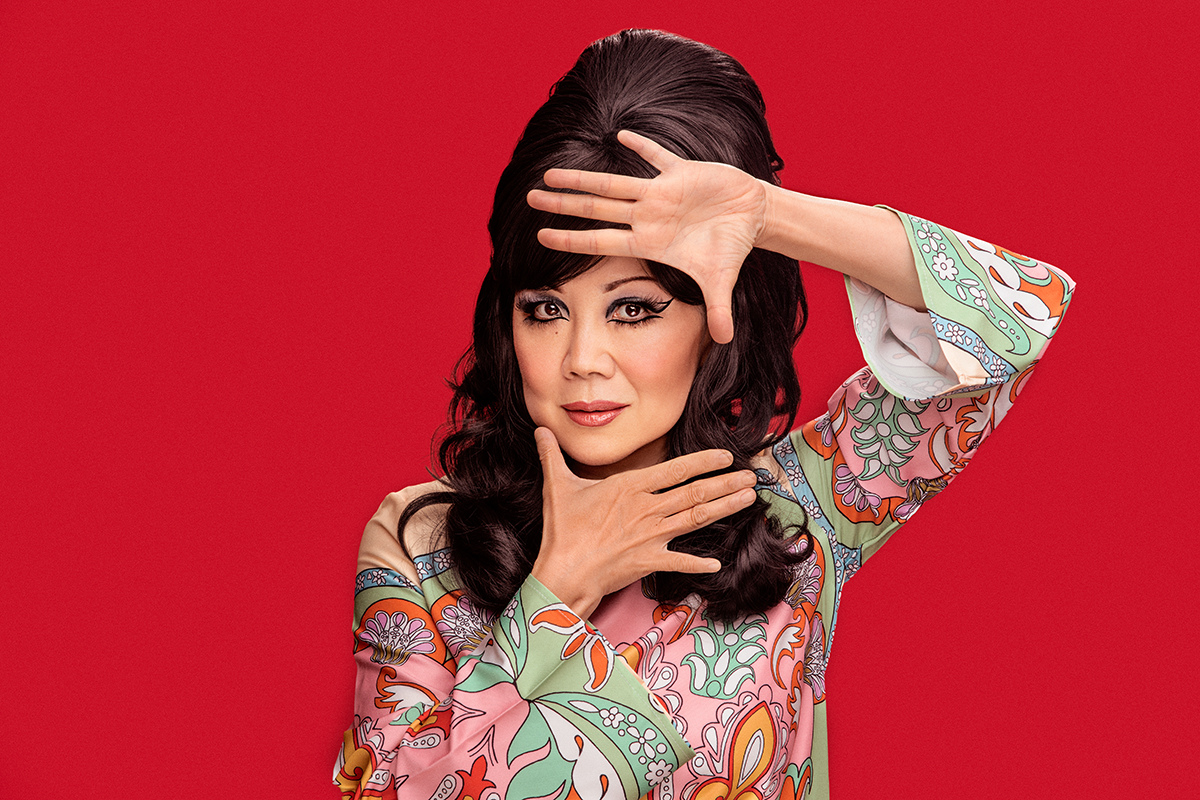

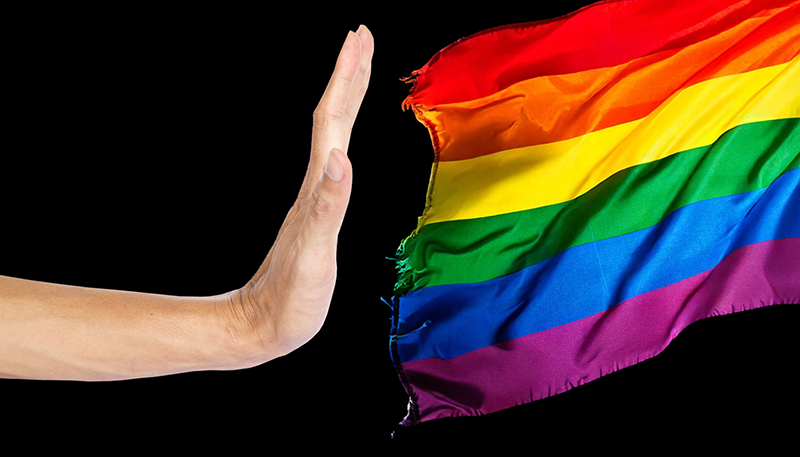













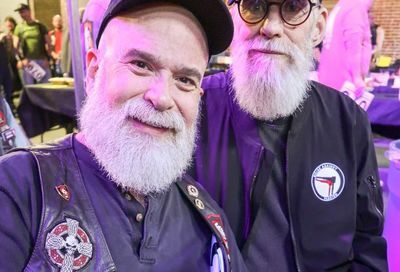
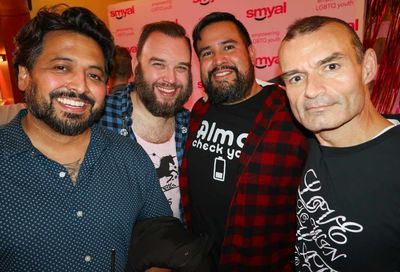
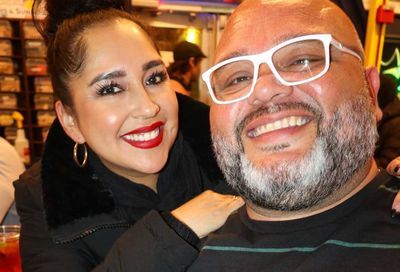
You must be logged in to post a comment.